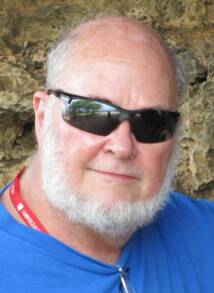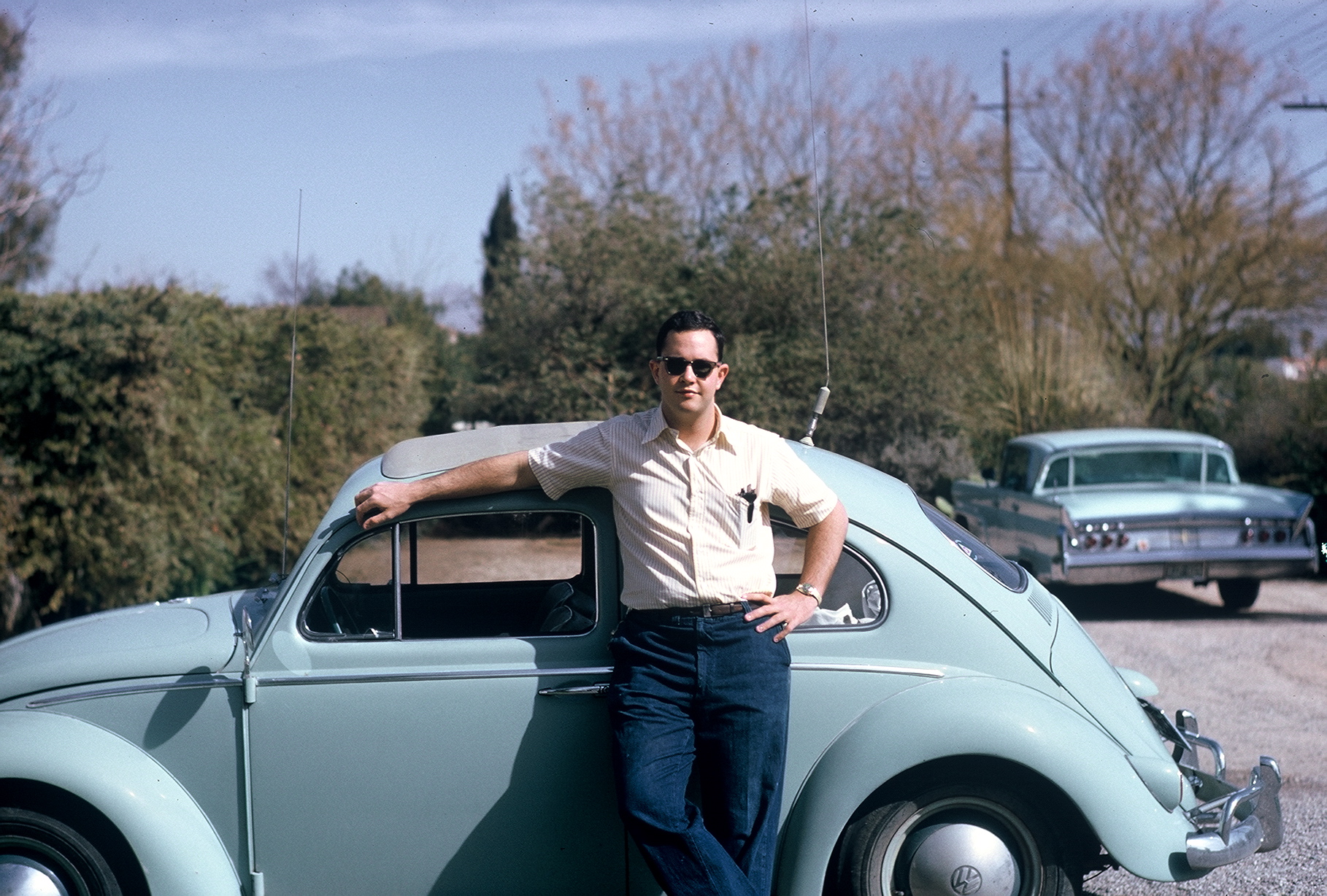I got my first class FCC license at the end of high school, about 1962. In 1963, while a student at the U of A, Huddy Hudson (whom I knew as a fellow Ham operator) hired me to fill in some vacation slots. Oliver Skramstad mostly worked there along with Huddy. The FCC required a Class 1 engineer on site 24/7, and Oliver had a bedroom where he slept. I never slept over. It was an ideal job for a college student. Primarily it consisted of getting up every half hour, noting down a dozen meter readings in the log, and then sitting back down and waiting for something to break. I was green and eager, so did it, but I suspect a lot of the log was filled in after a fellow woke up from a night shift. It was a truly boring job, and the only "excitement" would come at sunrise and sunset when I would get to change from the day to night transmitter and antenna system. That consisted of pushing two buttons at the prescribed time.
I did not work very many shifts, but it was a huge learning experience. I vividly remember my introduction. Oliver showed me the transmitters, how to change over, and wisely implied that aside from that I should pretty much leave them alone. If something broke, he said, just change over to the other transmitter, give one of us a call, and we'll come help. Then, as a final gesture as he was about to leave, he said with a measure of distaste "Oh, yeah... THAT is the audio panel." It was a standard 6 foot relay rack, with a bunch of jacks and patch cords on the front. He opened up the back panel, and it was a nightmare... cables everywhere, some soldered together and hanging in mid air with no insulation, some just cut off and swaying in the breeze... it was clear there was no one human being who knew what was in that thing. He closed the door without comment, but did manage to say "If something goes wrong, take that tape recorder over there and plug it in here. It has a couple of hours or recorded music and comments, but since it has no commercials the sponsors will scream if you have to use it." Then he left me to my organic chemistry books and turkey sandwiches.
On about my third shift, I was deep into my studies. There was a monitor in the site we were supposed to listen to to assure we were on the air, but I really did not like top 40, so I kept turning the volume down more and more. All of a sudden the phone rang. I cheerfully picked it up and answered "KTKT transmitter site!"I then heard a voice that I swear was God, although it might have been Frank Kalil. It said "WE'RE OFF THE AIR!!"I rapidly turned up the monitor. "You're right!", I replied. "FIX IT!!!", God said.
I jumped up, ready to do the one task I had been taught. Then I kind of froze. For the output meters of the day transmitter were all totally normal... except for the ones indicating modulation.
"Oh, my God", I thought. "The Audio Panel....."
Providence was kind, however. Huddy just happened to be outside, showing a friend his rock tumbler. (What better place to run a rock polishing machine that sounds like a badly tuned cement mixer 24 hrs a day than out in the middle of the desert?) I stuck my head out and yelled for help.
He came in, and confirmed the problem was in the audio. I mentioned the tape recorder. He did not remember how it plugged in, but having been shown only 2 days before, I did. So, I plugged it in, and became a micro-hero while Huddy traced the issue.
It turned out to be in the phone line to the studio. It had shorted out in the rain. So, while we waited for the phone company to fix the issue Huddy and I could sit back and listen to a pre-recorded Frank Kalil play random selections and assure the audience we would be back on the air soon.
I did not work there many more times, but remember filling in also at the station that played classical music, AM 790 KCEE. They had a combined studio/transmitter not far from the KTKT site. I vividly remember working there the Sunday after Kennedy was killed. The announcer was showing me around, and they had a little room off to the side where the AP teletype lived. I was kind of fascinated, watching the news come in. Every once in a while, a bell would ring. I asked what that meant, and he told me it was just a kind of alert... one bell for mildly interesting, two for important, three for big news. "You should have heard it last week", he said. "That bell must have rung 15 times".
So, he went back to the studio, and I went back to whatever i was doing. All of a sudden, the teletype gave out 5 or 6 bells. I wandered over, and watched as AP reported that Jack Ruby had just shot Lee Harvey Oswald. I felt way green and kind of stupid and unsure, but went over to the announcer, tapped him on the shoulder, and said ".... Ummm.. I think there's something you might want to see..."
He went to check, ripped off the paper, and broke in to his program with the bulletin.
And that was the last day of my radio broadcast career.
I hope I have described this well enough that you get the feelings I had during those times. It was my first real job, trying out brand new skills, being left all alone with these huge transmitters, and trying very hard not to screw up too badly. And, it was loads of fun.
Sure, we all remember the great KTKT disc jockeys spinning the hit records, and the newsmen keeping the city up to date with news. But, all that would not have been possible without a core of dedicated and skilled engineers behind the scenes to keep the 10,000 watt station booming out to all of Southern Arizona and sounding great!
Lately we've had contact with one of those who toiled in obscurity: David Grauman who kept the station on the air in the early 1960's.
David writes:
"Although your site and book focuses on the public personalities of KTKT, there was an entire culture that labored, gnomelike, behind the scenes. My first job was as a college student, working part time as an engineer maintaining the transmitters. While the personalities were in a nice, air conditioned building in downtown Tucson, the transmitters (and engineers) worked in a featureless concrete block building far in the Western desert. My Mentor was "Huddy" Hudson, the chief engineer. I have many special memories of being one of the troglodytes in that blockhouse, and how it formed my youth."
David shares with us his story from "those days" at KTKT to his current work as a medical doctor in the Northern Mariana Islands.



